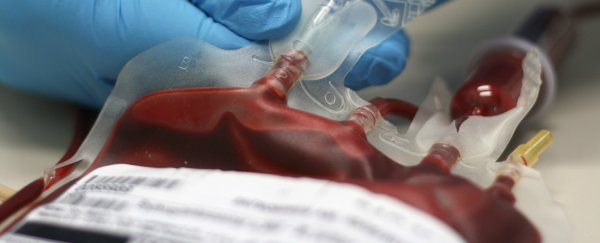An Australian man has donated blood plasma every three weeks for the past 60 years and saved the lives of more than 2 million babies vulnerable to rhesus disease thanks to his unique antibodies, according to the Australian Red Cross Blood Service.
James Harrison, 78, has an antibody in his blood that is used to create the Anti-D injection that routinely stops the immune systems of women with rhesus-negative blood from attacking their unborn rhesus-positive children.
When he was 14, Harrison benefitted from a life-saving blood transfusion during a lung operation, and started donating blood as soon as he was old enough. Around that time, thousands of babies were dying each year from what would later be diagnosed as rhesus disease.
But doctors soon discovered that Harrison's blood carried a rare antibody that was known to stop women with rhesus-negative blood from developing antibodies against their children, and in the 1960s they used Harrison's plasma to create the Anti-D injection, which is now routinely used to help women safely carry rhesus-positive babies to term
"Australia was one of the first countries to discover a blood donor with this antibody, so it was quite revolutionary at the time," Jemma Falkenmire from the Australian Red Cross Blood Service told CNN. And while they've since found 50 other people in the country who carry the same antibody, this blood characteristic is still extremely rare.
"Every bag of blood is precious, but James' blood is particularly extraordinary. Every batch of Anti-D that has ever been made in Australia has come from James' blood," added Falkenmire. "And more than 17 percent of women in Australia are at risk, so James has helped save a lot of lives."
Scientists still aren't quite sure why Harrison's blood carried these antibodies, but they believe it could have to do with the transfusions he received as a child during lung surgery. They're now hoping to find more blood donors with similar antibodies in their blood to take his place in the future.
